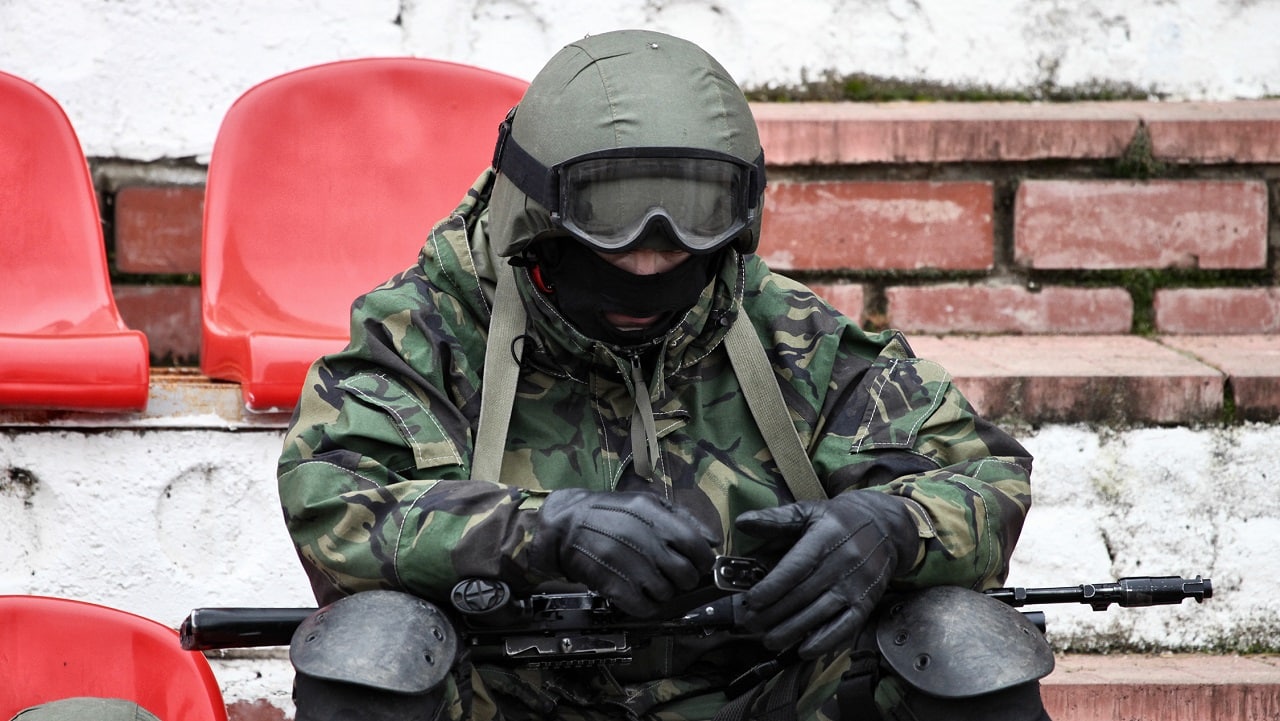Wagner Group Is a Paper Tiger: Russian President Vladimir Putin is desperate and isolated. His two-week plan to conquer Ukraine is approaching its second year. He shot adrenaline into NATO and unified much of Europe. His incompetence exposed the Russian army as a paper tiger at the cost of more than 100,000 lives. Increasingly, he relies on third-world powers like Iran and North Korea just to keep his military afloat.
Meanwhile, evidence mounts that Putin himself is terminally ill. Those who criticize Putin or whom Putin feels are insufficiently loyal to his ideas wind up dead, with defenestration now a leading cause among oligarchs. Nevertheless, speculation swirls about Putin’s possible successor.
(Subscribe to Our YouTube Channel Here.)
One name that repeatedly surfaces in the Kremlin’s Hunger Games is Yevgeny Prigozhin, Putin’s former chef who now heads Russia’s paramilitary Wagner Group. Prigozhin is the ultimate hardliner and a fierce nationalist. He reportedly has Putin’s full confidence. While Russia’s army sputters and its navy sinks, the Wagner Group has cultivated an image of ruthless competence.
The organization deserves no such accolades. A year ago, I traveled to Cabo Delgado, the northern Mozambique province overrun by an Islamic State offshoot in 2020. When the oil-rich province fell, the Mozambique government turned to the Wagner Group. They wasted their money.
The Naked Truth About Wagner Group
While the Wagner Group is good at public relations and taking on forces less disciplined than themselves, the Mozambique bush was simply too much for them. Only when President Filipe Nyusi turned to his Rwandan counterpart, Paul Kagame, was he able to get the insurgency under control.
The Central African Republic (CAR) subsequently became the poster country for Wagner success. Once again, public relations trumped reality. Just yards from the presidential palace in the capital Bangui, the Wagner Group erected a monument to itself and its alleged role protecting the capital’s residents from approaching insurgents.
Its claims were fiction.
While the Wagner Group deployed to the country’s outskirts to seize and exploit mining camps and other natural resources, the Rwandan Defense Forces took Bangui’s airport and fanned out around the capital to protect critical infrastructure and key terrain as the Islamists approached.
Unlike Cabo Delgado, from which Wagner Group fled, Russian guns-for-hire remain in upcountry CAR. Last spring, I visited a UN camp when a call came in about insurgent activity in an area Wagner operated. Once again, Wagner was unable or unwilling to tackle the problem. The dispatch of a Rwandan helicopter to the region settled the problem instantly.
When faced with a dedicated, professional army like the Rwandan Defense Force in Africa or most NATO armies in Europe, Wagner becomes the militia that wore no clothes.
Bottoming Out
Indeed, this is something the Ukrainians recognize even if Berlin, Brussels, and Biden do not. Wagner Group deployed to the Ukrainian town of Bakhmut on Ukraine’s eastern front. They provided no magic solution in the face of the determined Ukrainian opposition. In fact, they appear to have fared little better than ordinary Russian forces.
Certainly, the danger remains that Putin’s successor will be just as deluded as Putin has been. Russia’s nuclear arsenal makes any succession dangerous. At the same time, however, murderous intent is not synonymous with murderous ability. Putin’s rats will jump ship as his regime begins to sink, and Prigozhin will do the same.
When it comes to public relations, Prigozhin might top Putin. But if the standard is military prowess, they share the bottom of the same barrel.
More: Can a Coup Takedown Putin for Good?
More: Is Donald Trump Going Crazy?
More: Could Mike Pence Beat Donald Trump in 2024?
More: NATO vs. Russia – What World War III Would Look Like
Now a 1945 Contributing Editor, Dr. Michael Rubin is a Senior Fellow at the American Enterprise Institute (AEI). Dr. Rubin is the author, coauthor, and coeditor of several books exploring diplomacy, Iranian history, Arab culture, Kurdish studies, and Shi’ite politics, including “Seven Pillars: What Really Causes Instability in the Middle East?” (AEI Press, 2019); “Kurdistan Rising” (AEI Press, 2016); “Dancing with the Devil: The Perils of Engaging Rogue Regimes” (Encounter Books, 2014); and “Eternal Iran: Continuity and Chaos” (Palgrave, 2005).

